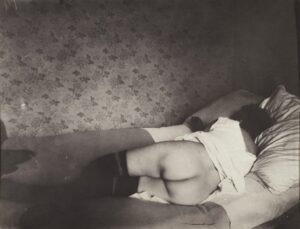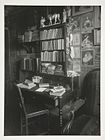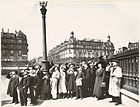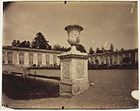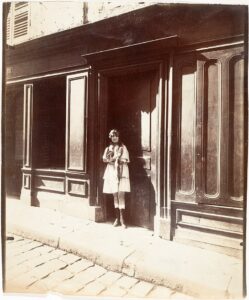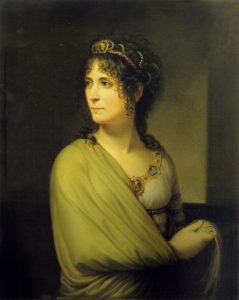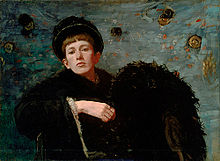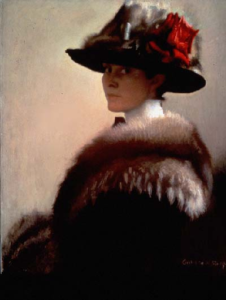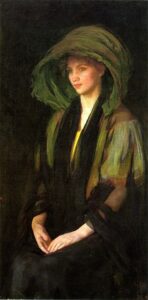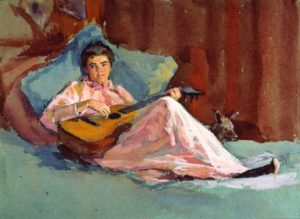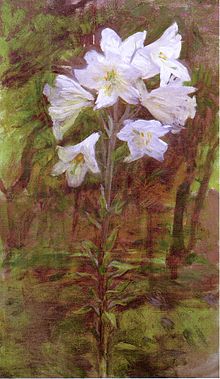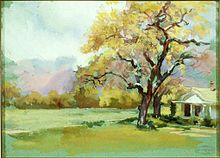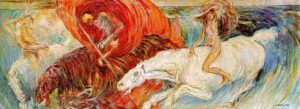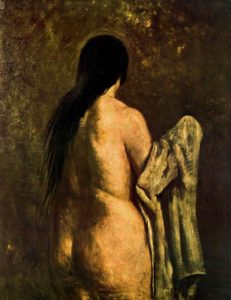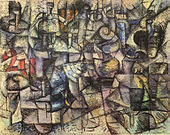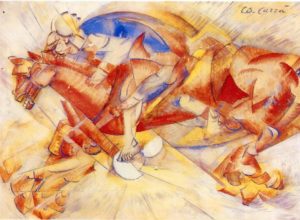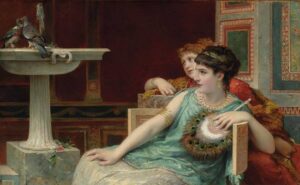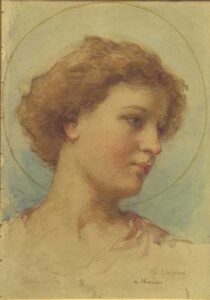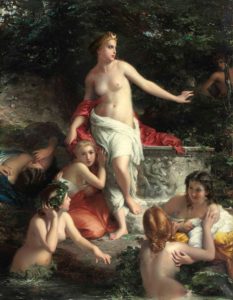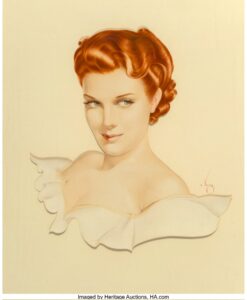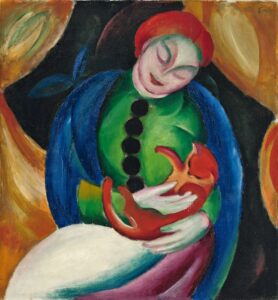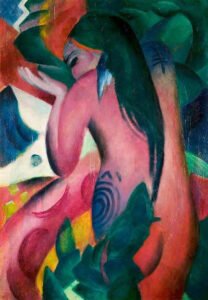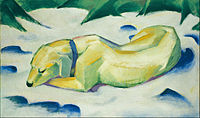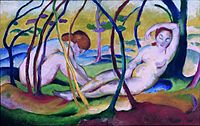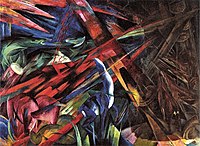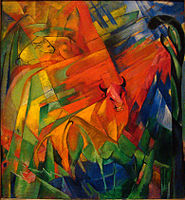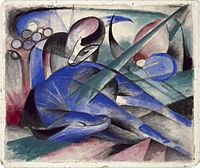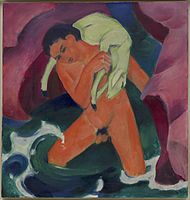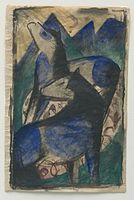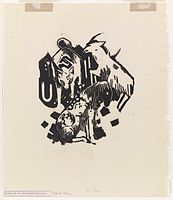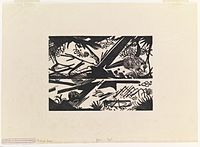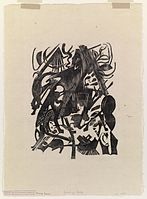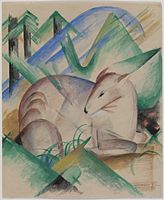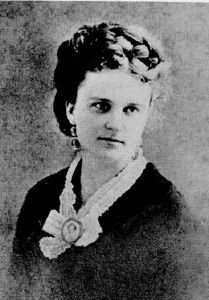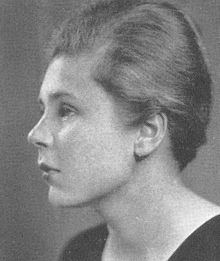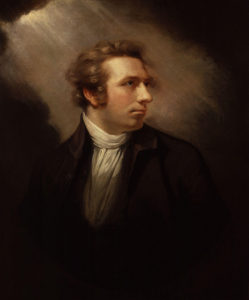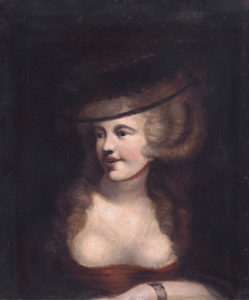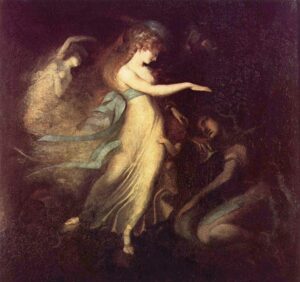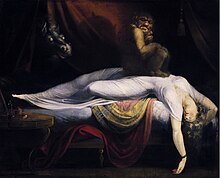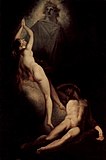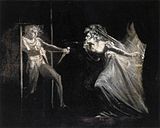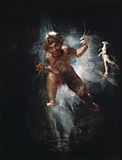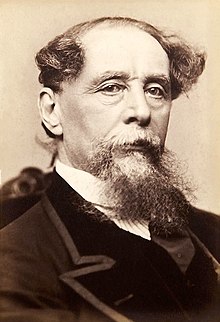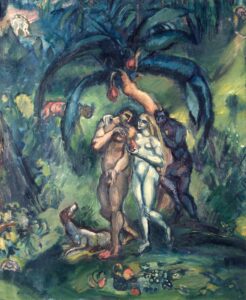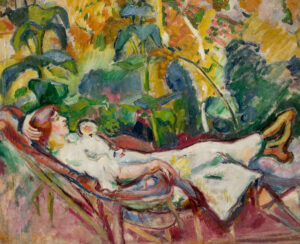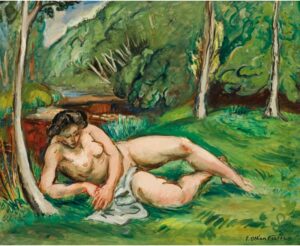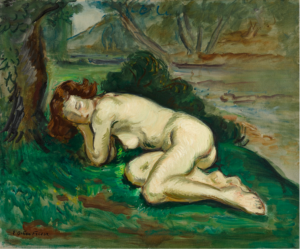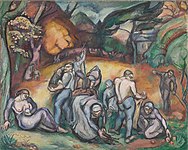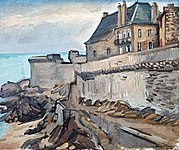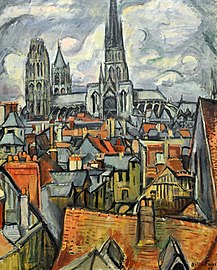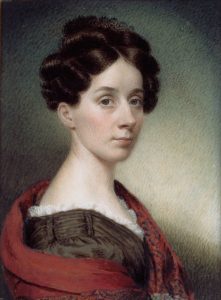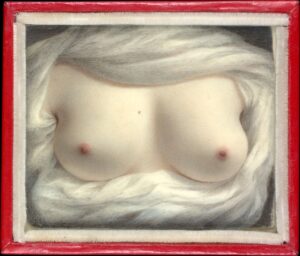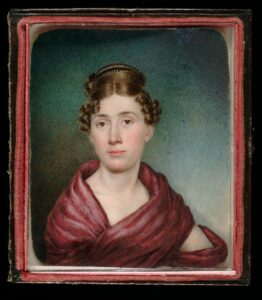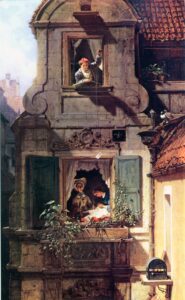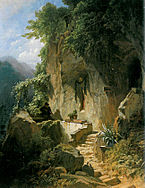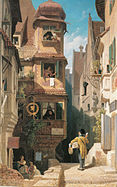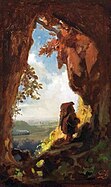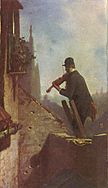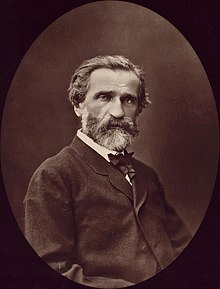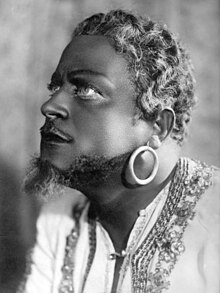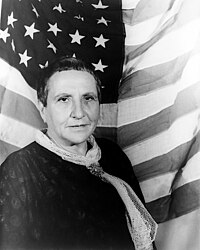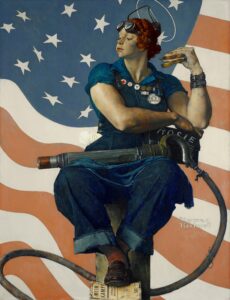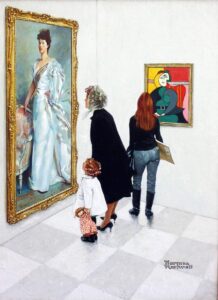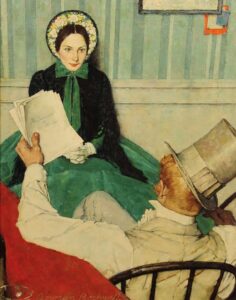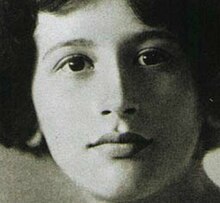| Otello |
| Opera by Giuseppe Verdi |
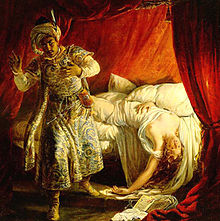
Otello and Desdemona
by Alexandre-Marie Colin, 1829
|
|
|
On this day – Verdi’s penultimate opera was first performed at the Teatro alla Scala, Milan, on 5 February 1887. Otello is an opera in four acts to an Italian libretto by Arrigo Boito, based on Shakespeare’s play Othello.
With the composer’s reluctance to write anything new after the success of Aida in 1871 and his retreat into retirement, it took his Milan publisher Giulio Ricordi the next ten years, first to persuade him to write anything, then to encourage the revision of Verdi’s 1857 Simon Boccanegra by introducing Boito as librettist, and finally to begin the arduous process of persuading and cajoling Verdi to see Boito’s completed libretto for Otello in July/August 1881. However, the process of writing the first drafts of the libretto and the years of their revision, with Verdi all along not promising anything, dragged on, and it wasn’t until 1884, five years after the first drafts of the libretto, that composition began, with most of the work finishing in late 1885. When it finally premiered it proved to be a resounding success, and further stagings of Otello soon followed at leading theatres throughout Europe and America.

Boito and Verdi at Sant’Agata

Francesco Tamagno as Otello in a costume designed by Alfred Edel for the original production

Baritone Victor Maurel, the first Iago

Set design model by Marcel Jambon from the Paris production (1894).
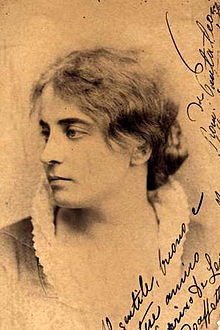
Romilda Pantaleoni, the first Desdemona
(1985), Kiri Te Kanawa (1991), Cheryl Studer (1993), Renée Fleming (1996) and Sonya Yoncheva (2015).
Synopsis
- Time: The late 15th century.
- Place: A coastal city on the island of Cyprus.
Act 1
A town in Cyprus, outside the castle. An inn with a pergola, in the background the quayside and sea. It is evening. Lightning, thunder, gale force winds.

Otello, act 1. Teatro Costanzi Rome-1887; set design by Giovanni Zuccarelli
On a stormy evening, the people of Cyprus anxiously await the arrival of the new governor, Otello, from a naval battle with the Turks (Chorus, Montano, Cassio, Iago, Roderigo: Una vela! / “A sail!”). For a moment it seems as if Otello’s ship will founder, to the delight of Otello’s treacherous ensign, Iago, but Otello arrives safely and announces that the Turkish fleet has been destroyed, and the Cypriots cheer (Otello, chorus: Esultate! L’orgoglio musulmano sepolto è in mar / “Rejoice! The Mussulman’s pride is buried in the sea”).
Iago offers to help the young Venetian gentleman Roderigo in his seduction of Otello’s wife, Desdemona – Iago envies Otello his success and longs to destroy the Moor (Iago, Roderigo: Roderigo, ebben che pensi? / “Well, Roderigo, what are you thinking?”). Among his grievances, Iago is outraged that Otello has appointed Cassio to be the captain of the navy, a position that Iago hoped to have. The people of Cyprus celebrate the safe return of Otello and his men by lighting a bonfire and drinking (Chorus: Fuoco di gioia!/ “Fire of joy”).
Iago proposes a toast to Otello and his wife, while Cassio praises Desdemona (Iago, Cassio, Chorus, Roderigo: Roderigo, beviam! / “Roderigo, let’s drink!”). Iago offers Cassio more wine, but Cassio says he has had enough. Iago pressures him and offers a toast to Otello and Desdemona. Cassio gives in. Iago sings a drinking song and continues to pour Cassio wine (Iago, Cassio, Roderigo, chorus: Inaffia l’ugola! / “Wet your throat”).
Montano enters and calls for Cassio to begin his watch; he is surprised to find Cassio drunk and barely able to stand upright. Iago lies to Montano, telling him that this is how Cassio spends every evening. Roderigo laughs at Cassio’s drunkenness and Cassio attacks him. Montano tells Cassio to calm down, but Cassio draws his sword and threatens to crack open Montano’s head. (Montano, Cassio, Iago, Roderigo, chorus: Capitano, v’attende la fazione ai baluardi / “Captain, the guard awaits you on the ramparts”.) Cassio and Montano begin to duel, and Iago sends Roderigo to call the alarm. Montano is wounded and the fight is stopped only by the appearance of Otello.
Otello orders Montano and Cassio to lower their swords. He then asks “honest Iago” to explain how the duel began, but Iago says he doesn’t know. Otello then turns to Cassio, who is embarrassed and cannot excuse his actions. When Otello discovers that Montano is wounded, he becomes enraged. Desdemona enters, and, upon seeing that his bride’s rest has been disturbed, Otello declares that Cassio is no longer Captain. (Otello, Iago, Cassio, Montano: Abbasso le spade / “Down with your swords”.) He tells Iago to patrol the town to restore quiet, calls for help for Montano and orders everyone to return to their houses.
The Cypriots leave Otello alone with Desdemona. Together Otello and Desdemona recall why they fell in love. Otello, in an ecstasy of joy, invites death, fearing that he will never know such happiness again. Desdemona prays that their love will remain unchanged. They kiss, overcome with love for each other. (Otello, Desdemona: Già nella notte densa s’estingue ogni clamor /”Now in the dark night all noise is silenced”.)
Act 2
A hall on the ground floor of the castle, divided by a glass partition from the garden at the back, with a balcony.
Iago suggests to Cassio that he should ask Desdemona to talk to Otello about his demotion; Desdemona can influence her husband to reinstate him (Iago, Cassio: Non ti crucciar / “Do not fret”). Desdemona and Emilia can be seen walking the garden. Cassio approaches Desdemona. Watching from the room, Iago voices his nihilistic beliefs and hatred of humankind (Credo in un Dio crudel / “I believe in a cruel God”).
Otello enters the room; Iago, pretending not to notice him, says that he is deeply troubled. Cassio sees Otello from afar and goes discreetly away. Otello asks what’s wrong, but Iago gives only vague answers. Finally, he hints that Cassio and Desdemona are having an affair. Otello begins to get suspicious, but declares that he needs proof before believing that Desdemona has been unfaithful. (Iago, Otello: Ciò m’accora… Che parli? / “That worries me…” “What did you say?”) Iago warns Otello against jealousy, but also advises him to be vigilant.
A crowd of children, sailors, and Cypriots sing to Desdemona, praising her beauty and purity (Chorus, Iago, children, Desdemona, Otello: Dove guardi splendono raggi / “Wherever you look, brightness shines…”). They present her with gifts and wish her happiness before leaving.
Desdemona carries Cassio’s request for reinstatement to Otello. Otello sourly tells her to ask him another time; as she persists, he grows impatient and says he has a headache. Desdemona offers to wrap his head in a handkerchief Otello once gave her, linen embroidered with strawberries. Otello throws it to the ground and says he doesn’t need it (Desdemona, Otello: D’un uom che geme sotto il tuo disdegno la preghiera ti porto / “I bring a petition from one who suffers under your displeasure”). Emilia picks up the handkerchief. Desdemona asks for Otello’s forgiveness. Aside, Iago demands that Emilia give him the handkerchief. When she refuses, Iago forcibly takes it from her.
Otello dismisses the others, and declares that he now believes that Desdemona may be deceiving him (Otello: Ora e per sempre addio sante memorie / “Now and forever farewell, holy memories”). Iago returns, and the jealous Otello demands proof of Desdemona’s infidelity. Iago says that once, when he and Cassio were sleeping in the same room, he heard Cassio talking to Desdemona in a dream. In the dream, says Iago, Cassio told Desdemona that they must be careful to conceal their love. (Iago: Era la notte, Cassio dormia / “It was night, Cassio was sleeping”.) Iago says that dreams don’t prove anything, but remarks that he saw Cassio carrying Desdemona’s strawberry-embroidered handkerchief just the day before. Otello swears vengeance on Desdemona and Cassio, and Iago joins him in his vow (Otello, Iago: Sì, pel ciel marmoreo giuro / “Yes, by the marble heavens I swear”).
Act 3
The great hall of the castle. To the right, a large colonnade leading to a smaller hall, in the back of which is a balcony. Othello and Iago talking in the hall as a herald enters.

The Act 3 set at the 1887 premiere in Milan. Illustration by Ed. Ximenes after the original stage design by Carlo Ferrario.
A herald brings news of the approach of ambassadors from Venice. Iago explains to Otello that he will lure Cassio here and talk with him while Otello watches, hidden. He leaves to go get Cassio. (Iago: Qui trarrò Cassio / “Here I will bring Cassio”.)
Desdemona enters and reminds Otello of Cassio’s request. Otello says that his headache has returned, and asks Desdemona to wrap her handkerchief around his head. When Desdemona produces a different handkerchief, Otello demands the one with strawberries. When she says she does not have it, Otello says that it was a talisman, and troubles will befall her if she loses it. Desdemona says that he is trying to ignore Cassio’s plea, and as she asks him about Cassio, he demands the handkerchief ever more insistently. (Desdemona, Otello: Dio ti giocondi, o sposo / “God keep you merry, husband”.) Desdemona protests that she is faithful; Otello sends her away (Desdemona, Otello: Esterrefatta fisso lo sguardo tuo tremendo / “Terrified, I face your dreadful look”).
Otello laments his fate (Dio! mi potevi scagliar tutti i mali / “God, you could have thrown every evil at me” ). When Iago calls out “Cassio is here!” Otello hides as Iago and Cassio enter. Cassio says he had hoped to see Desdemona here, for he wanted to know whether she had been successful with Otello (Iago, Cassio, Otello: Vieni; l’aula è deserta / “Come, the hall is deserted”). Iago asks him to tell of his adventures with that woman. Cassio asks which woman, and, softly, so that Otello cannot hear, Iago says “Bianca” (the name of Cassio’s actual lover). As Cassio laughs about his romantic adventures, Otello assumes he is speaking of Desdemona. In a conversation only partially heard, Cassio seems to be telling Iago that another woman, a secret admirer, left him a handkerchief as a token. At Iago’s urging, Cassio produces it, whereupon Iago seizes it—for it is Desdemona’s—and holds it out where he knows Otello can see it. He then returns it to Cassio and teases him, while in his hiding place Otello fumes (Iago, Cassio, Otello: Questa è una ragna dove il tuo cuor casca / “This is a spiderweb in which your heart is caught”).
Bugles sound, announcing the arrival of the Venetian ambassador, Lodovico. Iago warns Cassio that he should leave unless he wants to see Otello. Cassio exits, and Otello asks Iago how he should kill his wife. Iago advises Otello to kill Desdemona by suffocating her in her bed, while he will take care of Cassio. Otello promotes Iago to Captain.
Lodovico, Desdemona, Emilia, Roderigo, and other dignitaries enter. When Lodovico notes Cassio’s absence, Iago tells him that Cassio is out of favor. Desdemona interrupts, telling Lodovico that she hopes he will soon be restored. Otello calls her a demon and almost strikes her violently but is held back by Lodovico. Otello then calls for Cassio. (Lodovico, Otello, Desdemona, Emilia, Iago, chorus: Il Doge ed il Senato salutano l’eroe trionfatore / “The Doge and the Senate greet the triumphant hero”.) Cassio enters and Otello reads (mixing in insults to Desdemona) a letter from the Doge, announcing that he (Otello) has been called back to Venice and Cassio is to succeed him as governor of Cyprus. Enraged, Otello throws Desdemona to the ground. (Otello, Roderigo, Iago, Cassio, Lodovico: Messeri! il Doge mi richiama a Venezia / “Gentlemen! The Doge recalls me to Venice”.)
Desdemona, on the ground, laments (A terra! … sì … nel livido fango / “Fallen! yes, in the foul mud…”). The various characters express their feelings: Emilia and Lodovico express their sympathy for Desdemona, Cassio marvels at his sudden change of fortune, and Roderigo laments that Desdemona will soon depart. In separate asides, Iago urges Otello to take his revenge as soon as possible, while he will take care of Cassio. He advises Roderigo that the only way to prevent Desdemona from leaving is for Cassio, the new Duke, to die, and suggests that Roderigo murder Cassio that night. (Emilia, Cassio, Desdemona, Roderigo, Lodovico, Iago, Otello, chorus: Quell’innocente un fremito d’odio non ha nè un gesto / “That innocent one is without feeling or gesture of hatred”). In a fury, Otello orders everyone to leave. Desdemona goes to comfort him, but Lodovico pulls her away as Otello curses her. As the others leave, Otello raves about the handkerchief, then collapses. Iago presses Otello’s forehead with his heel, then walks away. Outside the crowd of Cypriots calls out victory and glory for Otello. (Otello, Desdemona, Emilia, Cassio, Roderigo, Lodovico, Iago, chorus: Fuggite! / “Begone”.)
Act 4
Desdemona’s bedchamber. A bed, a prie-dieu, a table, a mirror, some chairs. A light burns in front of an image of the Madonna which hangs above the prie-dieu. To the right is a door. On the table a light. It is night.

Otello: set design by Giovanni Zuccarelli for Act IV as staged at the Teatro Costanzi in Rome, 1887.
Desdemona is preparing for bed with the assistance of Emilia. She asks Emilia to put out the bridal gown she used on her wedding day, and says that if she dies, she wants to be buried in it. Emilia tells her not to talk about such things. Desdemona recalls how her mother’s servant Barbara was abandoned by her lover, and how she used to sing the Willow Song (Desdemona: Piangea cantando nell’erma landa / “Singing, she wept on the lonely hearth”). After Emilia leaves, Desdemona prays (Ave Maria) and then falls asleep.
Silently, Otello enters, with a sword. He kisses his wife three times; she awakens. Otello asks her if she has prayed tonight; she must die, and he does not wish to condemn her soul. She asks God for mercy, both for her and for Otello. Otello accuses her of sin, saying that he must kill her because she loves Cassio. Desdemona denies it and asks that he summon Cassio to testify to her innocence. Otello says that Cassio is already dead. Desdemona, horrified, pleads for mercy, but Otello tells her it’s too late and strangles her (Otello, Desdemona: Diceste questa sera le vostre preci / “Have you said your prayers tonight?”).
Emilia knocks at the door, (Emilia: Aprite! Aprite! / “Open up!”) announcing that Cassio has killed Roderigo. Desdemona softly calls out that she has been unjustly accused, but refuses to blame Otello. She dies. Emilia calls Otello a murderer; he retorts that Iago gave him proof of Desdemona’s infidelity. Otello begins to threaten Emilia, who calls for help. Iago, Cassio, and Lodovico enter. Emilia demands that Iago deny Otello’s accusation; he refuses. Otello says that the handkerchief Desdemona gave to Cassio is proof enough. Emilia, horrified, explains that Iago stole the handkerchief from her—Cassio confirms that the handkerchief appeared mysteriously in his lodgings. Montano enters and says that Roderigo, with his dying breath, has revealed Iago’s plot. Iago, brandishing his sword, runs away.
After he realizes what has happened, Otello grieves over Desdemona’s death. Initially he draws his scimitar (Otello: Niun mi tema / “That none fear me”) but then relinquishes it. He then stealthily draws a dagger from his robe (Otello: Ho un’arma ancor! / I still have another weapon!) and stabs himself. Others try to stop him, but it is too late. Before he dies, he drags himself next to his wife and kisses her (Otello: Un bacio…un bacio ancora…ah!…un altro bacio… / A kiss.. another kiss…ah…and yet another kiss). He lies dead next to Desdemona.
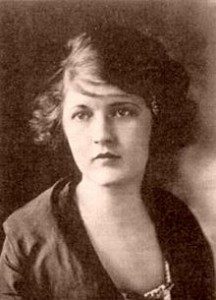 Zelda Fitzgerald, née Sayre, was F. Scott Fitzgerald’s great muse and more. He modeled many of his characters after her, and he even included lines in his books that were from letters that Zelda had written him.
Zelda Fitzgerald, née Sayre, was F. Scott Fitzgerald’s great muse and more. He modeled many of his characters after her, and he even included lines in his books that were from letters that Zelda had written him.


